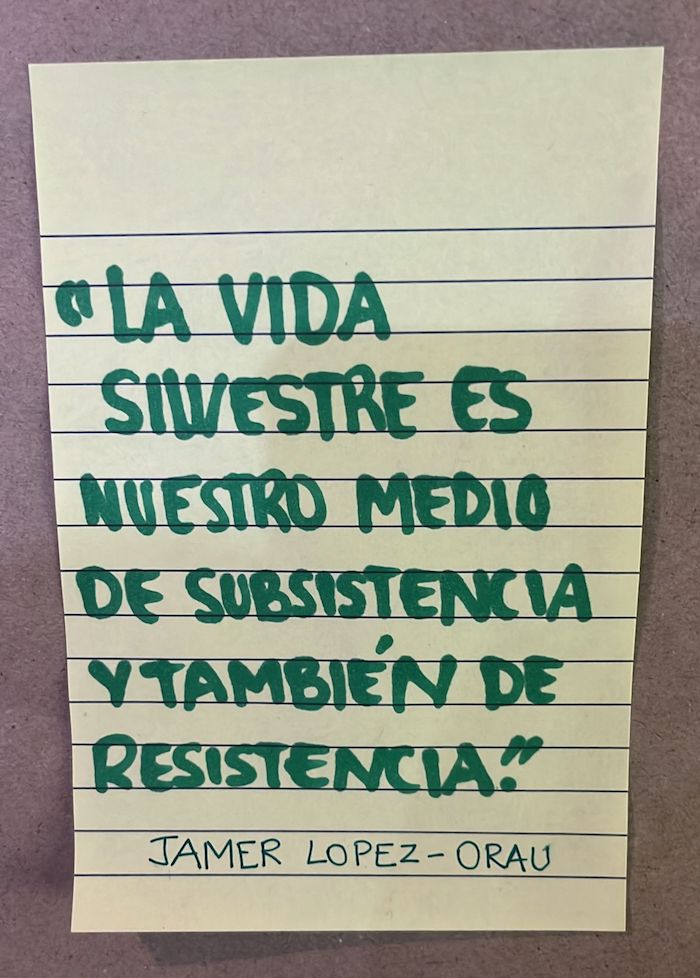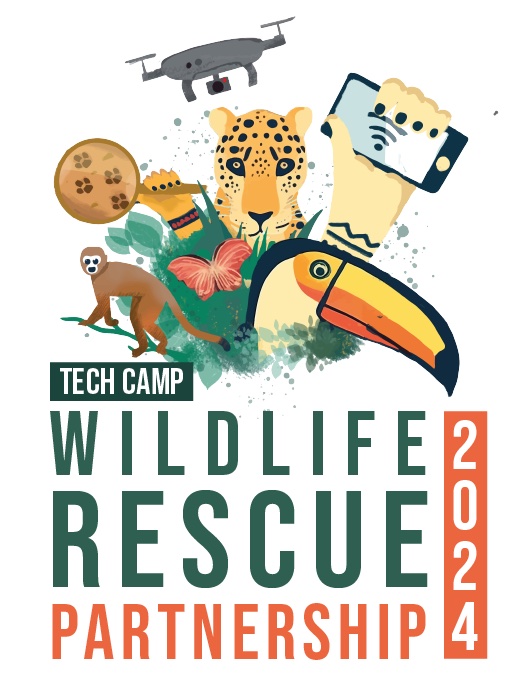- Workshop in Iquitos united 55 diverse participants to tackle challenges faced by Amazonian fauna.
- Key activities included creating Wildlife Maps and strategies to combat illegal trafficking of animals.
- The event forged alliances to create a lasting impact on Amazonian biodiversity conservation.
On July 3rd and 4th, the city of Iquitos, Peru, hosted an event dedicated to the protection of Amazonian wildlife. Organized by Rainforest Foundation US, the Regional Organization of Indigenous Peoples of the East (ORPIO), and the Regional Organization AIDESEP Ucayali (ORAU), and with financial support from the U.S. Embassy in Peru and the World Resources Institute (WRI), the event brought together a diverse group of 55 participants.

TechCamps are a unique form of a workshop supported by the U.S. State Department, which supports innovation and collaboration to tackle global challenges around the world. RFUS has used this model to bring together scientific experts, civil society, and Indigenous organizations to address social and environmental challenges in the Amazon rainforest since 2019. The July Techcamp focused on developing concrete strategies aimed at protecting wildlife and biodiversity across the Amazon basin.
“Wildlife is our means of livelihood and also of resistance.”
– Apu Jamer López Agustín, President of ORAU
The event was structured into five sections. In the first, participants drew on their extensive knowledge and created Wildlife Maps, identifying critical areas of extraction, collection, and illegal trafficking of animals. These maps provided a clear overview of the challenges and served as essential tools for building protection strategies and forming strong alliances.
In another section, participants were organized into different Malocas—a Pan-Amazonian term for a roundhouse where community events are held. Each Maloca provided space for reflection on the territorial issues affecting Indigenous peoples, particularly concerning the trafficking of fauna and flora. These discussions contributed to dismantling prejudices and fostering a better understanding of the crucial role that rescue centers and Indigenous organizations play in wildlife protection.
Later, during the Transformation Communal Houses activity, participants shared innovative practices and strategies that promote coexistence with local wildlife and combat illegal trafficking. This exchange of knowledge highlighted the importance of involving Indigenous peoples in biodiversity protection and in creating inclusive and creative solutions.

Additionally, attendees participated in an activity during which they identified problems and potential solutions, and devised agreements to address specific gaps within each institution.
The two-day workshop culminated in the creation of a Collaboration Map. It highlighted key areas where cooperative efforts had been most effective, and where they required the most improvement, to ensure that any strategy to emerge from the event is both tangible and impactful.
“This TechCamp was a crucial gathering for our partners as it allowed us to not only share and develop innovative strategies for wildlife protection, but also to strengthen the bonds between Indigenous communities, technology providers, and conservation organizations. Together, we are building a united front to safeguard the Amazon’s biodiversity and ensure that these efforts have a lasting impact on the ground,” said Gina Ruiz-Caro Rothgiesser, Rainforest Foundation US Western Amazon Director.
The strategic alliances that were forged are expected to have a significant and lasting impact on the protection of Amazonian biodiversity. With the active participation of organizations like HENDAta, EarthRanger, CREA, Amazon Shelter, Esperanza Verde, FCDS, Panthera, WCS, One Planet—and with the support of USAID and the U.S. Embassy in Peru—the event provided a space for regional collaboration like no other, while contributing to global efforts to protect one of the most significant biodiverse regions in the world.








